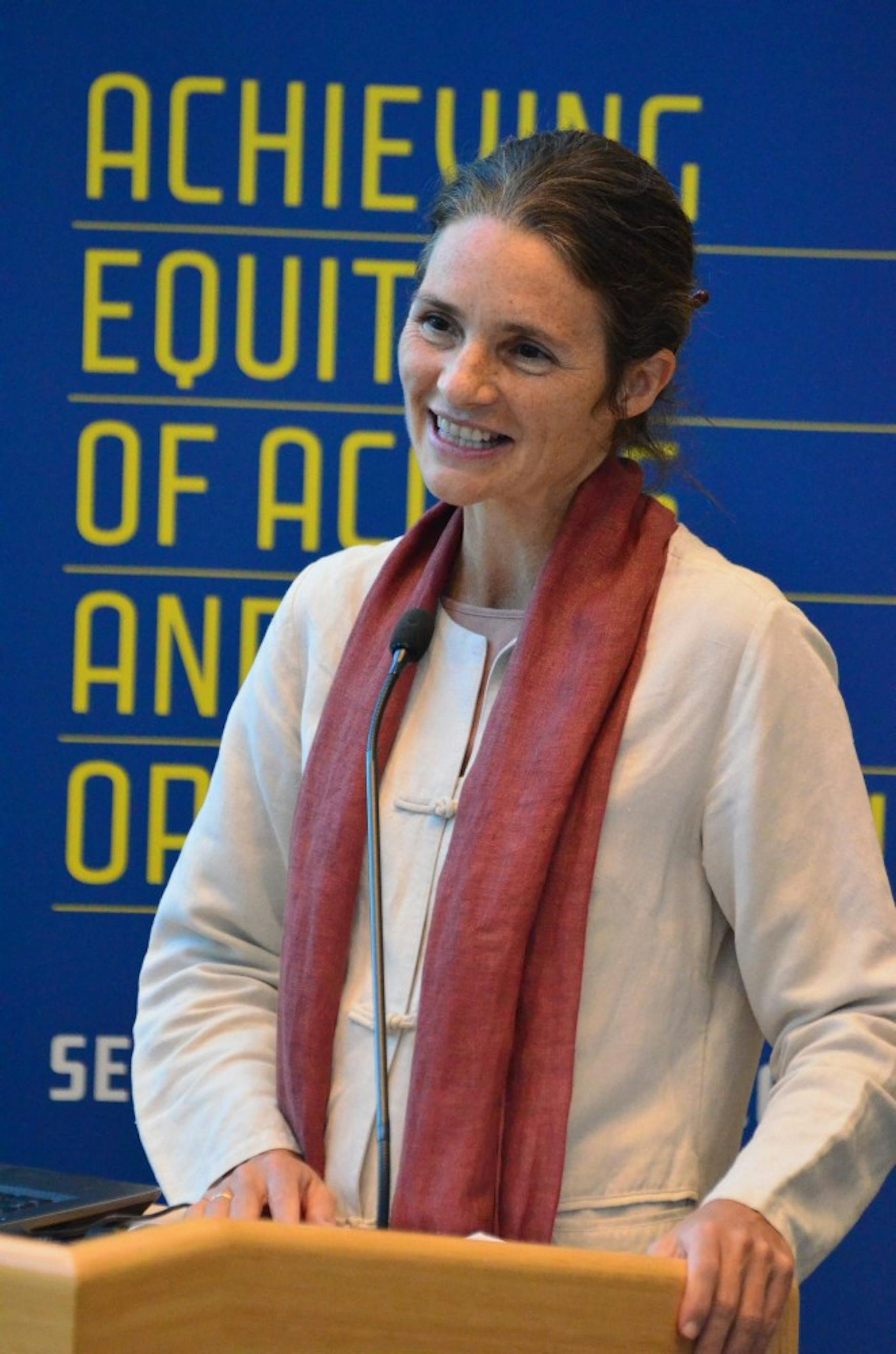Heller hosts 55th reunion
This weekend, the Heller School for Social Policy and Management hosted its 55th reunion and conference. Two keynote addresses, a number of workshops and several panels spanned Friday and Saturday, all geared toward the alumni of the Heller School.
Several groups associated with the Heller School organized the weekend, including the Office of Development and Alumni Relations, the Heller Alumni Association Board and the Heller Board of Overseers.
The weekend was given the title “Achieving Equity of Access and Opportunity” because that is “what Heller and its alums are all about,” Dean of the Heller School Lisa Lynch, who also served as a panelist at the event “The 50-Year Legacy of the Great Society and the War on Poverty,” wrote in an email to the Justice.
“[Our] mission at the Heller School is to drive positive social change that addresses disparities in well-being and promotes social inclusion through our research, education programs and public engagement,” she wrote.
The weekend began with an opening reception and a keynote address from Sabina Alkire, the director of the Oxford Poverty and Human Development Initiative, an economic research center. Within this center, Alkire worked to develop the Alkire Foster Method, which works to measure multidimensional poverty. Using this method, economists can more accurately study poverty in all forms of deprivation rather than just by looking at per capita income.
The events continued with a panel on Saturday morning in the Hassenfeld Conference Center called “Social Justice as an Anchor for Our Lives and Careers,” featuring three alumni panelists. The panelists were Thomas Glynn Ph.D. ’77, the CEO at the Massachusetts Port Authority; Joan Wallace-Benjamin Ph.D. ’80, who is the president and chief executive officer at the Home for Little Wanderers, a nonprofit which focuses on providing programs and services for children and their families; and Lisa Wang Ph.D. ’91 who is a professor and library director at the National Chung Cheng University in Taiwan.
The second panel was titled “The 50-Year Legacy of the Great Society and the War on Poverty.” The panelists were Prof. Stuart H. Altman (Heller), Lynch and Jack Shonkoff, the former dean of the Heller School. The discussion, which took place on Saturday afternoon, discussed the development of social welfare policy in the 1960s when Heller was founded as well as the historical context and reaction to the Great Society programs in the 1980s.
The weekend finished with the annual gala dinner and a keynote address from former United States Secretary of Labor Robert Reich. His address, “The Inequality Express,” addressed the growing gap between different classes in the U.S.
Heller Director of Development and Alumni Relations Leslie Godoff wrote in an email to the Justice that she remembered that, despite the energy of alumni reconnecting with each other, “the room was silent as Reich spoke about the disparities everyone [in the room was] committed to repairing.”
Lynch wrote that, having worked with Reich as chief economist in the Labor Department when he was secretary of labor, “He is one of the most effective communicators I know on issues of income and work.”
“His speech Saturday night highlighted his capacity to inform, inspire and educate,” Lynch continued, calling the weekend in its entirety “a fabulous experience.”
“Our alums work on the most pressing social issues and do extraordinary work in a context of having to do more with fewer and fewer resources,” Lynch wrote. “To have several hundred alumni, faculty and students all together discussing how to best transform the arc of the lives of people in the communities they work with was empowering for all.”
When asked if there was anything that really stood out for her, Lynch mentioned having several alumni ask the first evening if Heller still had the same social justice mission and, by the end, hear nothing but how they were thrilled to see “the next generation of social agents.”
“The school might be physically larger [then when it was founded],” Lynch wrote, “but it is still true to its historical roots.”



Please note All comments are eligible for publication in The Justice.